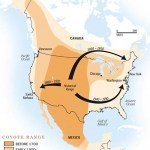public health
by Kim Krisberg
For years, Peter Rosenfeld was looking for an effective way to treat what doctors had diagnosed as severe and intractable migraines. He'd heard of medical marijuana, but thought it was a joke — that it was just a way for people to justify their marijuana use.
Then in 2000, the New Jersey resident enrolled in a California program studying the effects of medical marijuana. It was a blind study, so Rosenfeld didn't know whether he was one of the participants being given marijuana or not. It turns out he was. And it worked.
"Marijuana was the first effective treatment that I had…
by Kim Krisberg
To the long list of hard-to-pronounce bacteria and viruses that threaten people's health can now be added one more threat: sequestration. Except sequestration isn't a disease — well, unless you'd call Congress' chronic inability to deal with the national debt in a fair and balanced way a disease.
Of course, if sequestration were a real disease, the public health system might actually be immune to such budget-slashing illnesses by now, considering its near-constant exposure rate. But come this January, if Congress doesn't act, the public health system will absorb another round…
A few weeks ago, the editors of my local Austin American-Statesman admitted they were wrong. In "Tort reform's slight impact no shock," the editors recalled their support for a 2003 proposition on the Texas ballot to put a $750,000 cap on non-economic damages in medical malpractice cases. The measure passed by a 51 to 49 percent margin, with strong support by the Texas Medical Association.
"We tepidly supported the proposition. After all, voters were being asked to limit their legal rights should they fall victim to medical error. Still, reservations noted, we crossed our…
Uganda just can't catch a break. They've recently been hit with nodding disease, a mysterious syndrome where children repeatedly nod their heads and undergo serious seizures, typically leading to death. Now they're in the grips of another Ebola outbreak. This will be the fourth time the country has suffered through Ebola since 2000, when the virus was first found in the country:
The first occurred in August of 2000; the first case died in Gulu on the 17th of September. Despite an investigation, doctors were unable to determine where or how she had contracted the disease. Her death was…
by Kim Krisberg
In the fall of 2011, a new Texas statute took effect against employers who engage in wage theft, or failing to pay workers as much as they’re owed. The statewide statute put in place real consequences, such as jail time and hefty fines, for employers found guilty of stealing wages from workers. It was a big step forward in a state where wage theft has become as common as cowboy boots and pick-up trucks.
In El Paso, which sits on the western-most tip of Texas on the border with Juarez, Mexico, and is among the most populous cities in the nation, wage theft has become so rampant…
by Kim Krisberg
Legislative attacks on women's health care are so commonplace these days that they make proposals that don't include a state-mandated vaginal probe seem moderate.
In fact, so many legislators are introducing proposals under the guise of protecting women's health (2011 marked a record number of reproductive health restrictions), that it was pretty refreshing to read how the Affordable Care Act will actually protect women's health. Like, for real.
Last week, the Commonwealth Fund released a report finding that the health reform law is already making a difference in the lives of…
With my colleague Greg Tinkler, I spent an afternoon last week at a local public library talking to kids about zombies:
The Zombie Apocalypse is coming. Will you be ready? University of Iowa epidemiologist Dr. Tara Smith will talk about how a zombie virus might spread and how you can prepare. Get a list of emergency supplies to go home and build your own zombie kit, just in case. Find out what to do when the zombies come from neuroscientist Dr. Greg Tinkler. As a last resort, if you can't beat them, join them. Disguise yourself as a zombie and chow down on brrraaaaiiins, then go home and…
by Kim Krisberg
Hunger in America can be hard to see. It doesn't look like the image of hunger we usually see on our TVs: the wrenching impoverishment and emaciation. Talking about American hunger is hard because, well, there's food all around us. Everywhere you look, there's food — people eating food, people selling food, people advertising food, people wasting food, people dying of eating too much food. The obesity epidemic alone is getting so big that it's slowly swallowing the health care system in billions of dollars of care.
We have a food problem.
But food cost money. So for some…
I know summer is winding down, but there's still plenty of beach time left and some great books to take along with you. Two giants in the field have recently released memoirs of their respective fights against infectious diseases: William Foege's House on Fire: The Fight to Eradicate Smallpox and Peter Piot's No Time to Lose: A Life in Pursuit of Deadly Viruses.
I'll begin with William Foege. Foege is a native Iowan, an Epidemic Intelligence Service alum, and former director of the Centers for Disease Control and Prevention. His book, as the title suggests, focuses on his role in the fight…
It's not the first time that Kenneth Rosenman, MD has provided scientific evidence on the deficiencies in the Bureau of Labor Statistics (BLS) annual survey of occupational injuries and illnesses, and it won't be the last. His latest study, written with Joanna Kica, MPA, with Michigan State University's (MSU) Department of Medicine ,reports that the Labor Department's methods for estimating work-related burns misses about 70% of them. Their analysis focused on cases occurring in the State of Michigan in 2009. The MSU researchers used data from the State's 134 acute-…
by Kim Krisberg
Just a few years ago in Butte County, Calif., it wasn't unusual for public health workers to administer more than 1,000 free HIV tests every year. In true public health fashion, they'd bring screening services to the people, setting up in neighborhoods, parks and bars, at special community events and visiting the local drug treatment facility and jail. The goal was prevention and education, and no one got turned away.
That was before 2009, which is when California state legislators cut millions in HIV prevention and education funds from the state budget. The cut meant that…
This is the last of 16 student posts, guest-authored by Jessica Waters.
Climatologists have been warning us about the ongoing and impending consequences of global warming for years. But the results of climate change affect more than just polar bears and penguins - if you live anywhere in the northeastern, north-central or west coast states of the U.S.., you could be at a greater risk for contracting Lyme Disease.
Lyme disease is an infection of the Borrelia burgdorferi bacterium that is spread through black legged ticks (otherwise known as deer ticks) who feed on the…
This is the fifteenth of 16 student posts, guest-authored by Cassie Klostermann.
One of the major accomplishments that public health professionals pride themselves in is the reduction of people getting sick or dying from preventable infectious diseases. Unfortunately, these debilitating, historic diseases that health professionals had once thought they had under control are starting to rear their ugly heads once again in the United States (U.S.). One of these diseases that I am referring to is measles. Measles is a highly contagious virus (from the genus Morbillivirus) spread…
This is the fourteenth of 16 student posts, guest-authored by Caroline Rauschendorfer.
Cryptosporidiosis, known more commonly as crypto, is a gastrointestinal (GI) disease caused by parasites of the Cryptosporidium genus. If infected with crypto you may experience diarrhea, nausea, vomiting, fever, and abdominal cramps that can last up to two weeks. Definitely something you want to avoid, if possible, but at least it usually resolves on its own without medical intervention and is rarely fatal in otherwise healthy individuals. [3]
The most common disease causing organisms for…
This is the thirteenth of 16 student posts, guest-authored by Jessica Ludvik.
One Disease, Many Species
Brucellosis, more commonly known as undulant fever in humans or bangs disease in cattle, is one of the oldest bacterial scourges of livestock-producing nations, especially those in which the animals live in close proximity with the human population. The disease is caused by bacteria of the genus Brucella. Within this category are many species of bacteria, each almost exclusive to a particular animal species. A few of the most common seen in veterinary and human…
This is the twelfth of 16 student posts, guest-authored by Stanley Corbin.
Disease in wildlife is an important concern to the health and safety of humans and domestic animals. The expanding growth of our nation and resultant land use changes with urbanization has resulted in a shrinking habitat and fragmentation for all animals, including humans. The effects of ecological disruption are universally recognized and adversely effects wildlife through multiple mechanisms.
Hand it to the coyote (Canis latrans) for its ability to exist with humans. The resilience of this animal can be…
This is the eleventh of 16 student posts, guest-authored by Ilze Berzins.
When one hears the words “food-borne illness”, what comes to mind? For me, I think of a medium rare, pink, juicy hamburger, or something like potato salad that may be made with mayonnaise containing raw eggs, or maybe a fresh green garden salad sprinkled with sprouts. I am sure we have all heard about outbreaks or recalls surrounding these familiar dishes. And the usual suspects contaminating these food stuffs are often bacteria with familiar names such as E.coli or Salmonella. …
This is the tenth of 16 student posts, guest-authored by Jean DeNapoli.
I own a small back yard flock of sheep and lambing season is the most exciting and rewarding time of the year. Nothing is more enjoyable than watching a lamb who takes a few wobbly steps and nurses for the first time as her mother nickers encouragement. Within a day, the lamb will be playing, bucking, running, and exploring her world.
Despite the pastoral wonders of the season, lambing is also inherently stressful. I must constantly check the barn to monitor for birthing problems and help out…
This is the eighth of 16 student posts, guest-authored by Michelle Formanek.
For many of us in the scientific world, particularly budding infectious disease epidemiologists like myself, the Plague (or, more dramatically, the “Black Death”) is a prime example of the rapid and devastating spread of an infectious disease. So devastating, in fact, that it wiped out nearly one-third of the population in Europe in the mid-1300’s. That’s roughly equal to 25 million people. It then persisted and has caused various outbreaks throughout history, most notably the Great Plague of London in…
This is the seventh of 16 student posts, guest-authored by Joshua Pikora.
Recently an article published in PLoS Neglected Tropical Diseases titled Chagas Disease: “The New HIV/AIDS of the Americas” caused a stir in the media receiving coverage through Fox News and The New York Times among others. This article, as the title indicates, claims that Chagas disease is the new AIDS of the Americas and likens the current situation of Chagas disease to that of the first two decades of the AIDS epidemic, but is that truly the case1? The argument that I gained from the article is that…


